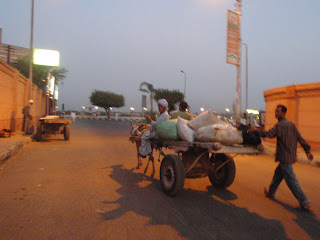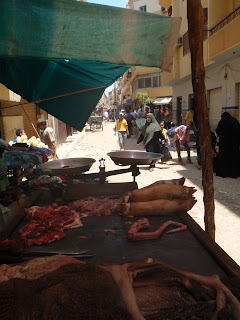| Language map of Kenya |
So why does Kiswahili matter?
Kiswahili matters for several reasons. The founding fathers of African liberation touted Kiswahili as the pan-African language of communication and a symbol of pan-African pride. Kiswahili was originally a translocal trade language on the Swahili coast of East Africa. Because it was spoken in several countries and could not be traced to a single ethnic group, so the assumption went, Kiswahili would more likely be embraced by African people throughout the continent. This was a big idea that never caught on because the Founding Fathers were more concerned with protecting their sovereignty and consolidating political power than promoting pan-African ideas that might diminish their individual authority.
There are now over 100 million speakers scattered across East (and to a lesser degree Central and Southern) Africa, but there is little support for the initiative. However, the dream was revived recently when the outgoing president of Mozambique, Joaquim Chissano, delivered his farewell speech to the African Union (AU) in Kiswahili. Kiswahili also has "official working language" status in the African Union.
Beyond East Africa
Kiswahili is taught at the University of Ghana (or at least this was true the last time I checked a few years back). And across the Atlantic, African Americans were introduced to Kiswahili in the late 60s by way of Kwanzaa, an African American celebration of African cultural roots developed by Maulana Karenga and other cultural nationalists. Afrocentric African Americans have adopted the Kiswahili word Maafa (translated as "great suffering") to describe the Afrikan Holocaust of enslavement.
Is Kiswahili an Arabic language?
A major misconception about Kiswahili is that it is an Arabic language. This is incorrect. Kiswahili is an African (Bantu) language with a rich lexicon of Arabic loan words. Languages are classified by their structure (e.g. syntax or rules of word order and morphology which includes how a single word is modified to convey different meanings. For example, adding "s" to indicate plurality in English) and only secondarily by their vocabulary. Structurally, Kiswahili is 100% African (Bantu).
The African Renaissance
I am predicting that this will be Africa's century. The recent events in Kenya will be one of many new developments coming out of Africa. GI
<><><><><><><><><>
Kiswahili becomes Kenya's official language
By Wahome Thuku
Kiswahili is now an official language, meaning you can demand to be addressed in it in any office. With the promulgation of the new Constitution, Kiswahili has become one of the two official languages in Kenya. Section 7 of the new Constitution declares Kiswahili and English as Lugha Rasmi (official languages) in Kenya. And under Section 7 (1), Kiswahili retains its previous status as Kenya’s national language. For this language, the journey to its new status has been long and grueling.
Kiswahili had to overcome all odds in the 1960s and 70s even to be accepted as the national language. On July 25, 1969, then Attorney General Charles Njonjo strongly objected to the introduction of Kiswahili as an official language. Then Embu East MP Kamwithi Munyi had tabled the Motion to have Kiswahili declared the official language in Government offices and in the National Assembly.
But according to Mr Njonjo, only 40 per cent of Kenyans then could competently speak in Kiswahili and a lot of work would have to be done to encourage the other 60 per cent to accept the language. Njonjo argued Kiswahili was an Arabic language [this is false. Kiswahili is an African language. see my explanation above. GI] and if all foreign languages were to be done away with then it should be among them. "Nearly every MP has his own way of speaking Swahili and to use it here would make the House like the Tower of Babel where nobody would understand whatever the other said," Njonjo told Parliament. And he could not comprehend how laws would be made in Kiswahili.
On July 4, 1974 President Jomo Kenyatta declared Kiswahili a Parliamentary language, the following day, Parliament was treated to drama as MPs attempted to make contributions in the language. It was even news when Kenyatta addressed Parliament in Kiswahili. Cabinet minister Robert Matano, himself a Swahili speaker, was among those who pushed hard for its recognition.
Read more @ The Standard | Online Edition
tags: kenya, Languages of Africa, african renaissance








 .
.
 .
. .
. '
'


 .
. .
.
